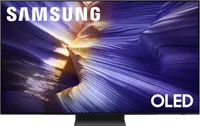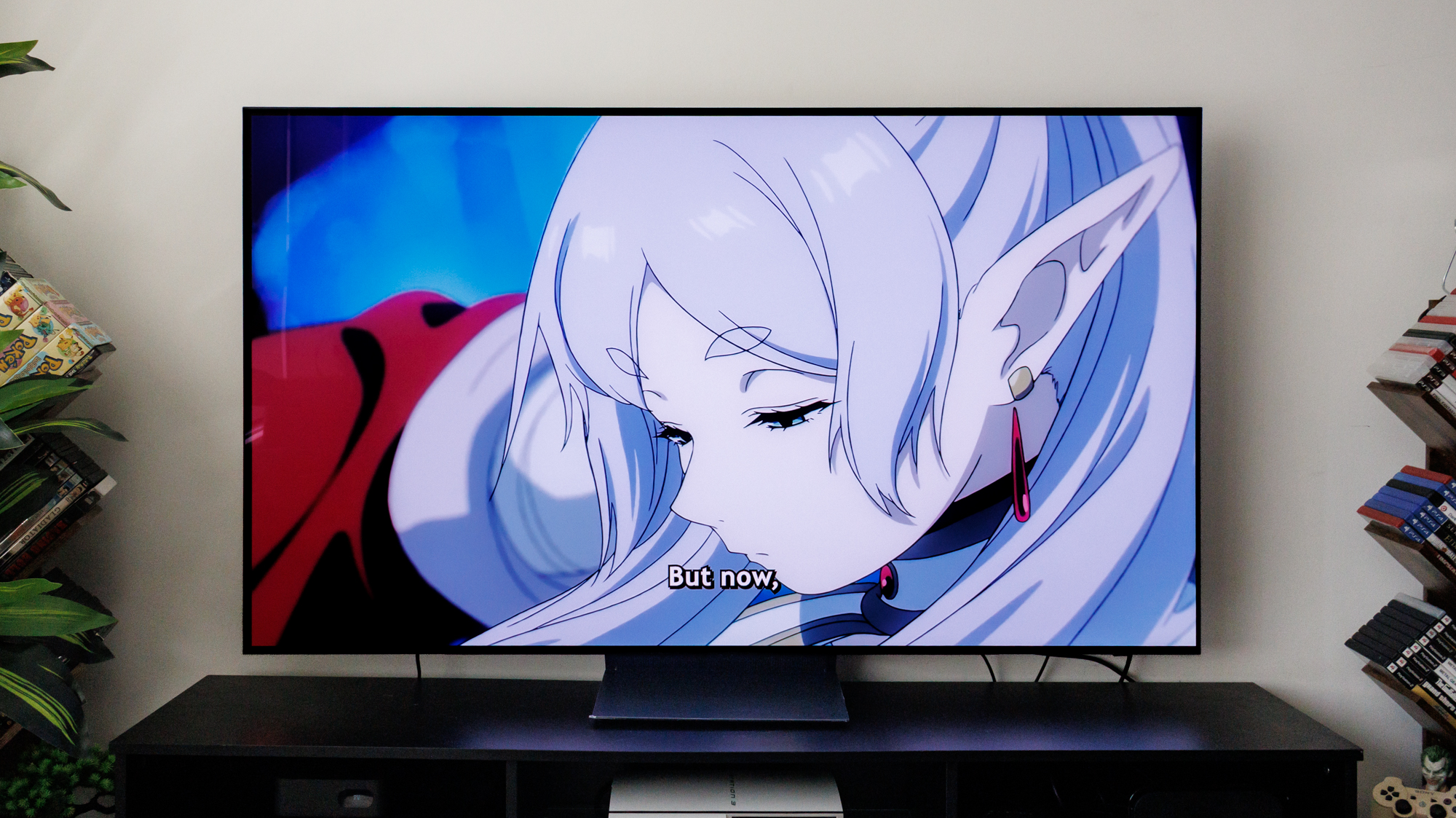
The Samsung S90F is, by far, my favorite OLED TV of the year.
This wasn't always the case. Around this time of the year, my colleagues and I usually spend a ton of time recommending LG's mid-range OLED over Samsung's when discussing value-packed OLED TVs.
But after I spent plenty of time with this TV for my Samsung S90F review, I started recommending it to friends looking to buy a new TV this year. Here's why the S90F came out on top in my personal ranking this year, and why I think it's even better than the LG C5.
The S90F is competitively priced
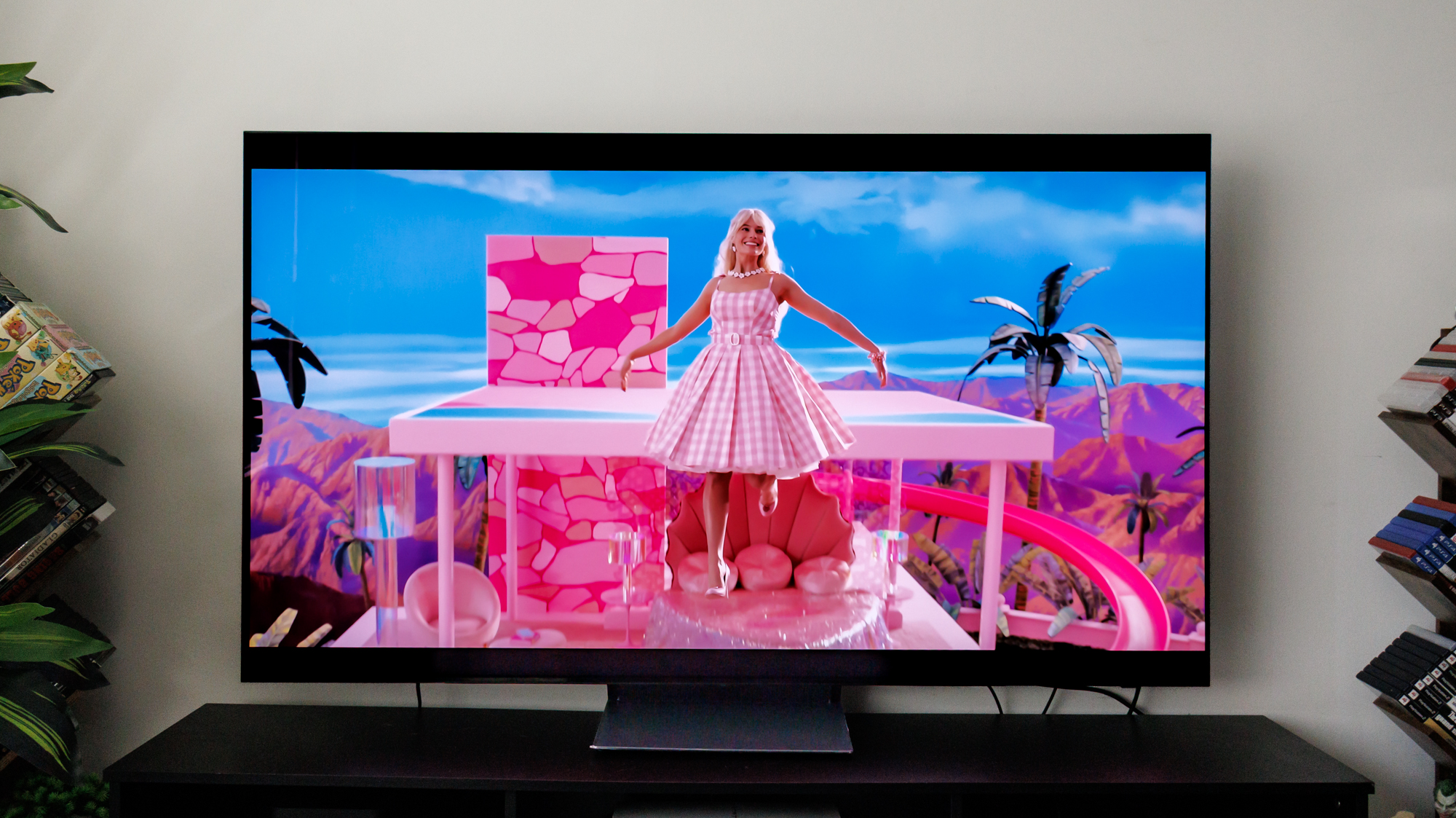
The Black Friday sales season hasn't officially begun, but the Samsung S90F is already priced competitively when compared with the rest of the OLED TV market. The 65-inch S90F debuted at $2,499, but since then, its price has plummeted by $900. This is a stellar discount.
That sale price extends to every size in the series, too, which brings me to my next point: You can buy the Samsung S90F in six different sizes ranging from 42 to 83 inches. That isn't the case with flagship-level OLED TVs that tend to arrive in fewer size options.
The Samsung S90F is an enticing new OLED TV. In addition to the built-in benefits of OLED display technology (like perfect black levels and wide viewing angles), the S90F also arrives with tons of free streaming channels and several cloud gaming services via Samsung Gaming Hub.
42" for $1,097
48" for $1,297
55" for $1,497
77" for $2,997
83" for $4,497
There are cheaper OLED TVs (like the LG B5 or Samsung's own S85F), but neither of those options will net you the level of performance and features you'll get with the S90F.
In fact, even though the LG C5 is currently about $200 cheaper than the S90F, I still prefer the latter. Here's why.
Get instant access to breaking news, the hottest reviews, great deals and helpful tips.
The S90F goes toe-to-toe with the C5
| Header Cell - Column 0 | Samsung S90F | LG C5 |
|---|---|---|
SDR Brightness (10%, in nits) | 520 | 344 |
Delta-E (lower is better) | 1.1 | 1.2 |
Rec. 709 Gamut Coverage | 99.99% | 99.66% |
HDR Brightness (10%, in nits) | 1,162 | 1,179 |
UHDA-P3 Gamut Coverage | 100% | 99.45% |
Rec. 2020 Gamut Coverage | 89.03% | 76.18% |
Input Lag (ms) | 9.1 | 9.1 |
The S90F outperforms the C5 in two major categories: SDR peak brightness and color volume. This means that the S90F offers better highlight brightness during standard, everyday content (like cable TV and most streaming shows). That not only helps to improve visibility in brighter rooms, but also adds pop, making it more realistic.
The S90F's added color volume makes for a more vivid picture during HDR movies and shows. The C5 features terrific color volume, but it's not quite as colorful as the S90F.
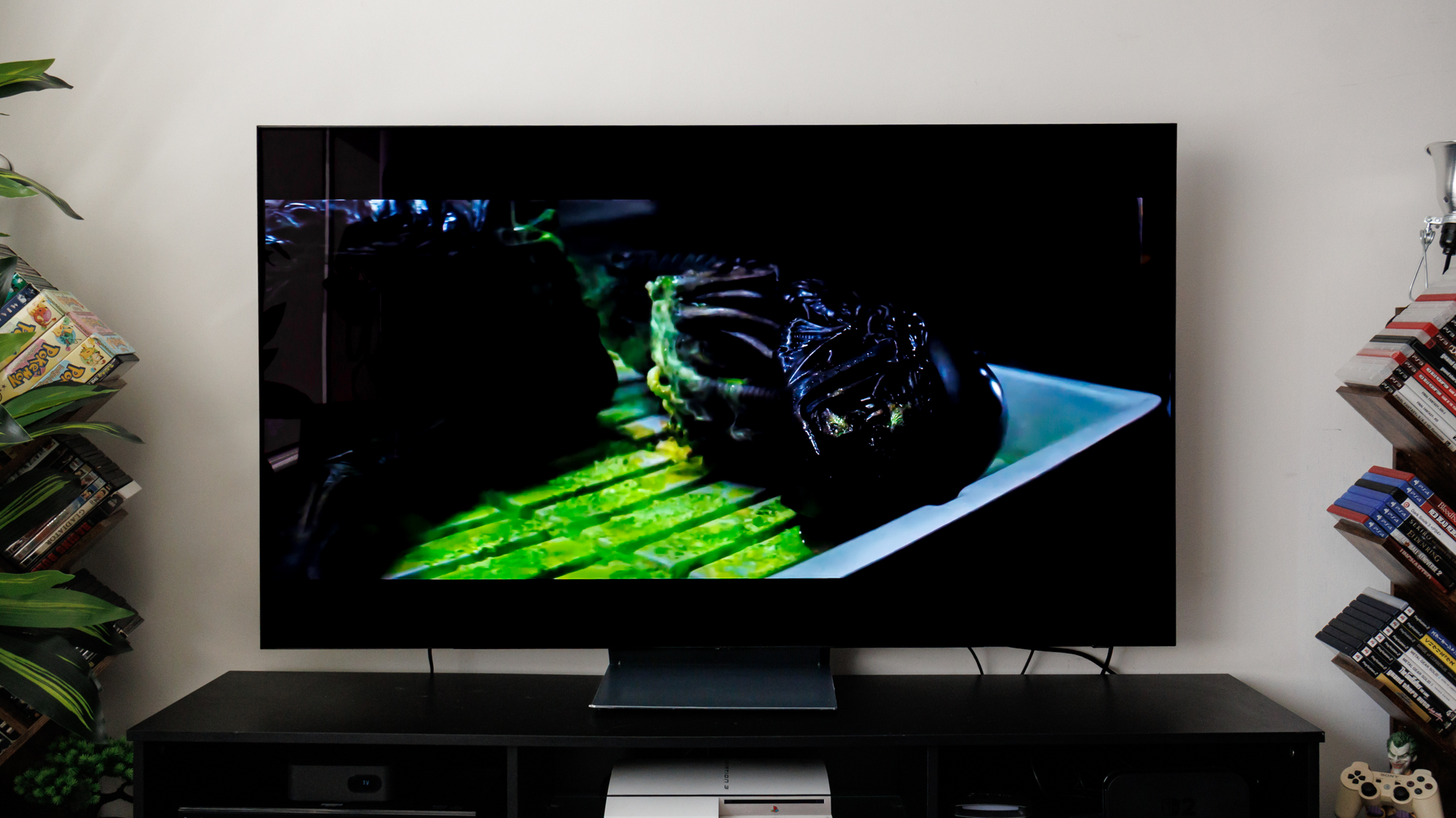
It's important to note that one of the reasons the S90F is capable of such excellent color volume is due to its use of quantum dots, a layer of nanocrystals in the display that allow for brighter, purer color. Not every size in the S90F series comes with quantum dots, and unless you opt for the 55-, 65- or 77-inch S90F, you won't reap the benefits.
The Samsung S90F is also one of the best gaming TVs in its class. It shares the same 9.1m of input latency as the LG C5, making it superb for fast-paced games, including Battlefield 6 and Call of Duty.
Some of my favorite newer games look phenomenal on the Samsung S90F, including Silent Hill f, Death Stranding 2 and Pokémon Legends Z-A.
The Samsung S90F isn't perfect
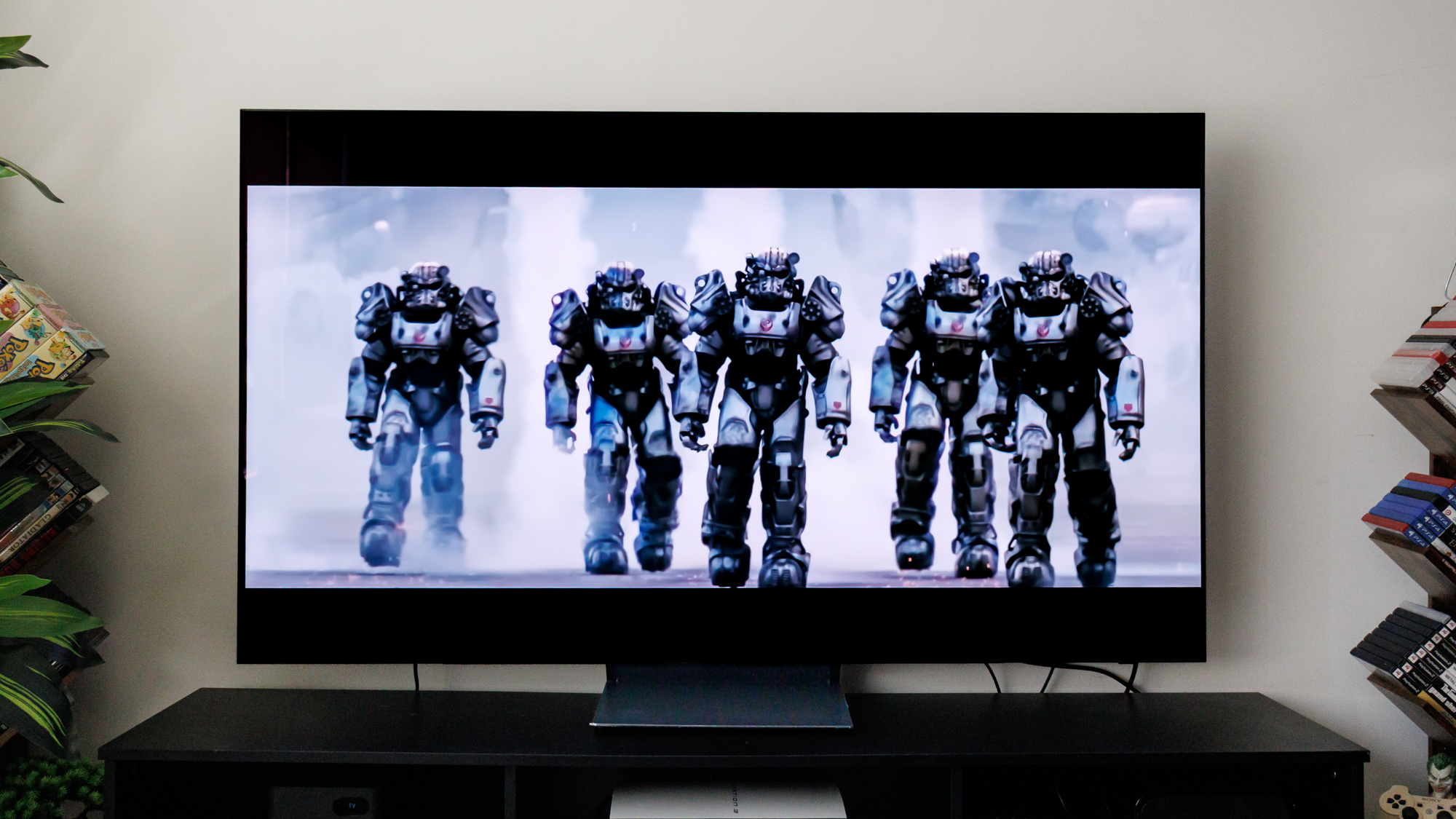
As mentioned, the 42-, 48- and 83-inch versions of the S90F use a WOLED panel rather than a quantum dot-equipped OLED panel from Samsung Display.
The other major issue with the S90F (and all Samsung TVs) is the lack of Dolby Vision. Instead of supporting one of the most popular HDR formats, Samsung uses an open-source HDR format called HDR10+. They work similarly, but Dolby Vision content is more popular across streaming apps and discs. (However, one of the largest repositories of HDR10+ content is Amazon Prime Video, so you do have options.)
The Samsung S90F is also saddled with middling audio. This is the case for most TVs, as there's limited space to pack a powerful speaker system within the chassis of a TV, so you'll want to get one of the best soundbars to pair with the S90F for exceptional audio quality.
Other OLED TVs to consider
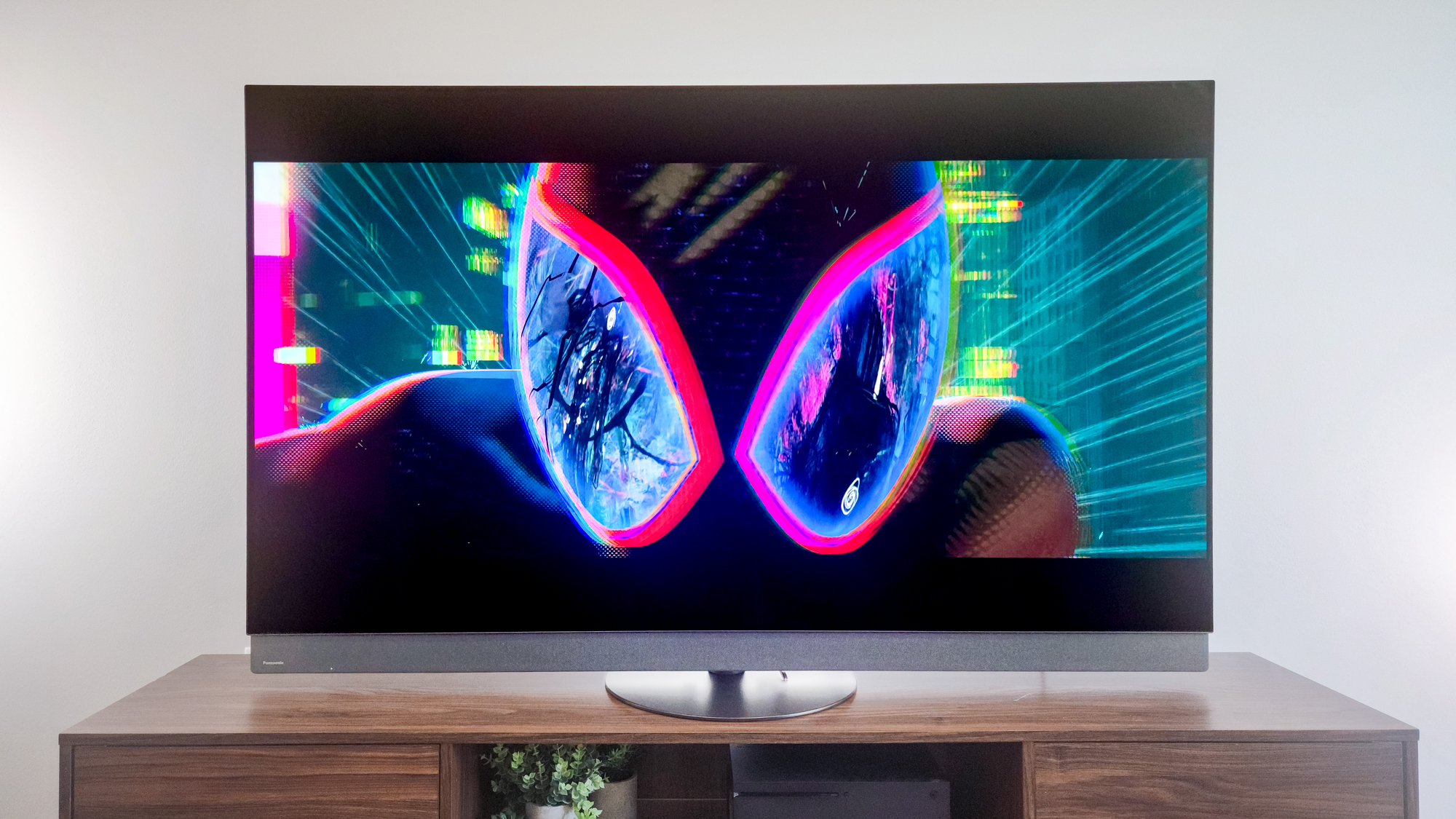
While the Samsung S90F OLED is one of the best TVs of the year, there are several other OLED TVs you can consider that are priced lower or offer better performance.
One of the most obvious alternatives to the S90F is the LG B5 OLED. It's far cheaper than both the S90F and the LG C5, but its performance isn't nearly as good as those mid-range sets.
Another alternative (and another one of my personal favorite OLED TVs this year) is the Panasonic Z95B. It offers the most bombastic audio system you can buy in a TV, but it comes at a staggering $2,197 starting price. That's $600 more than the S90F, making it a tough bargain despite its exceptional performance.
Now that you've seen the competition, hopefully you understand what makes Samsung S90F so appealing to me: its price-to-performance ratio. Right now, you can get the 65-inch S90F OLED TV for $1,597 on Amazon. If you're looking for a great TV upgrade that boasts some of the best color and brightness in a mid-range OLED TV, this is the model I stand by.

Ryan Epps is a Staff Writer under the TV/AV section at Tom's Guide focusing on TVs and projectors. When not researching PHOLEDs and writing about the next major innovation in the projector space, he's consuming random anime from the 90's, playing Dark Souls 3 again, or reading yet another Haruki Murakami novel.
You must confirm your public display name before commenting
Please logout and then login again, you will then be prompted to enter your display name.
 Club Benefits
Club Benefits





